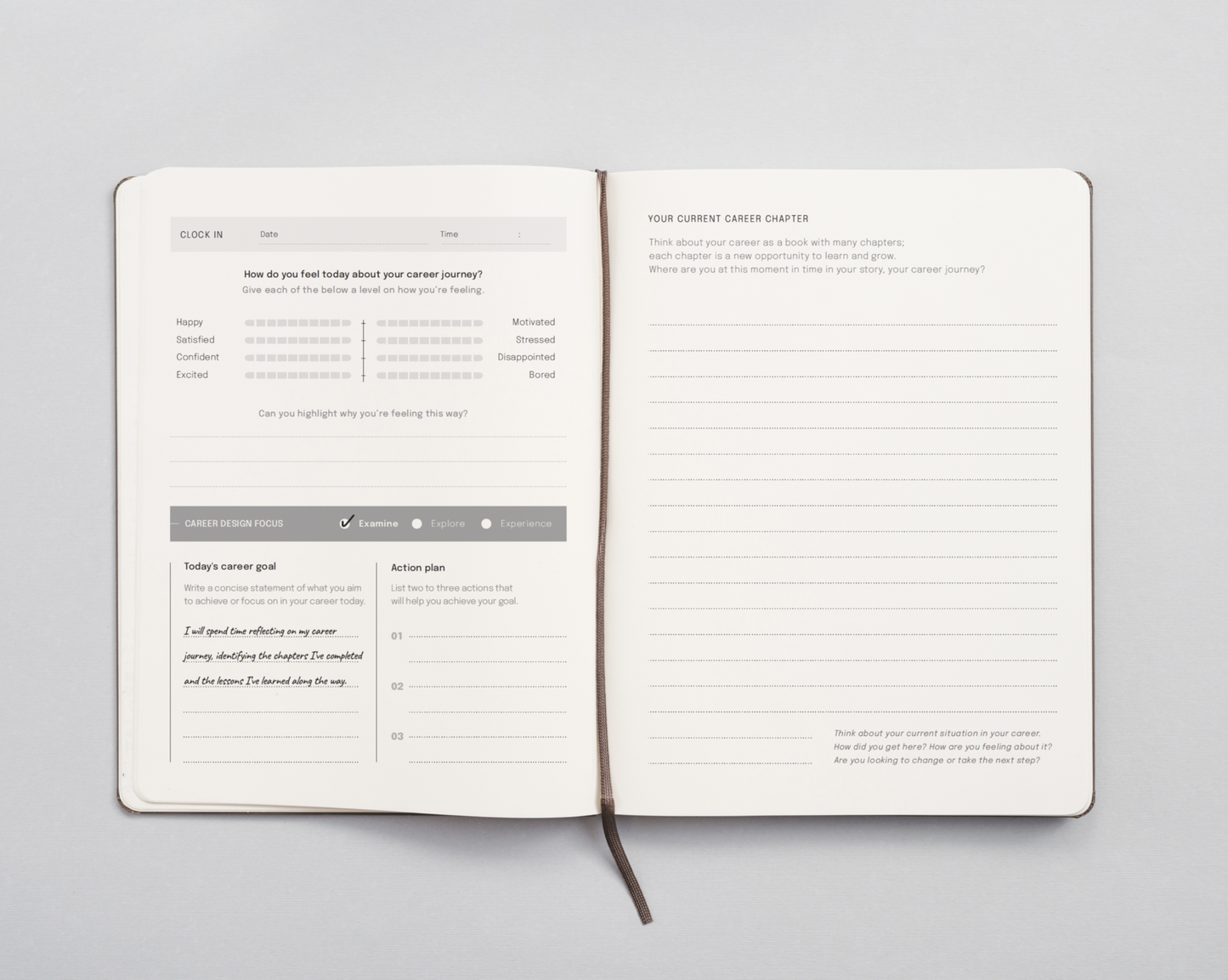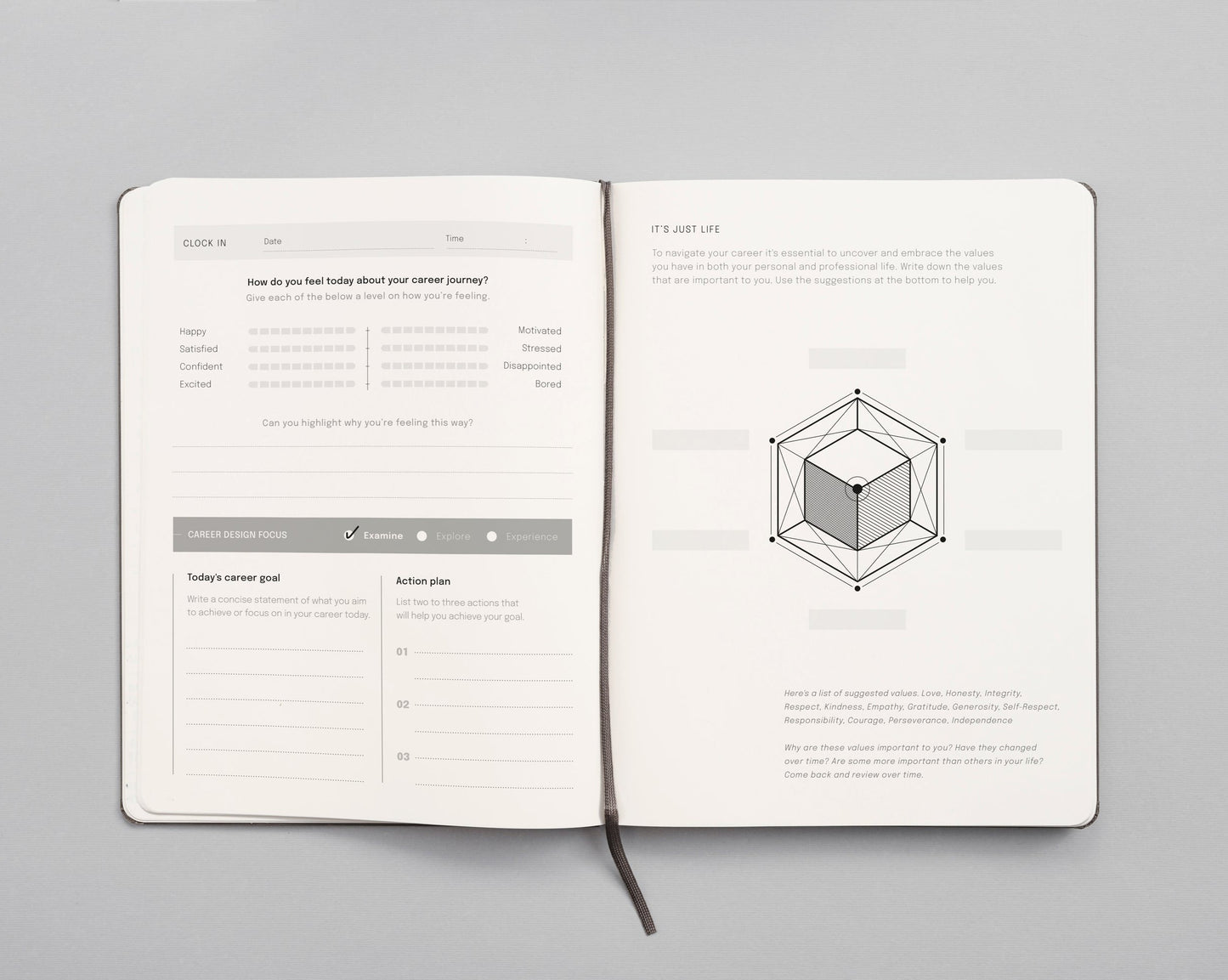I Don't Have Time to Journal!: Time-Saving Tips for Busy Professionals
You’re a busy professional. Your days are packed with meetings, deadlines, and unexpected challenges. The last thing on your mind is adding another task to your already overflowing to-do list: journaling. But hear me out. Career journaling can be a powerful tool for self-discovery, goal setting, and stress reduction. And yes, it can fit into even the busiest schedule.
Why Journaling Matters for Your Career
Before we dive into time-saving tips, let's quickly explore why journaling is beneficial for your career. Career journaling helps you:
- Gain clarity: By writing down your thoughts and feelings, you can identify patterns, challenges, and opportunities in your career.
- Set goals: Journaling allows you to define your career aspirations and create actionable steps to achieve them.
- Reduce stress: Writing about your experiences can help you process emotions and find solutions to problems.
- Increase self-awareness: Understanding your strengths, weaknesses, values, and motivations is crucial for career success.
In the context of your career, it can help you identify strengths, weaknesses, opportunities, and threats (a SWOT analysis), track your professional growth, and clarify your career goals.
Finding Time to Journal: Practical Tips
- Micro-journaling: Commit to just five minutes a day. You'd be surprised how much you can capture in a short burst. Use a dedicated journal or a simple note-taking app on your phone.
-
Batch journaling: Instead of daily entries, set aside a specific time each week for a longer journaling session. This approach can be effective for those who prefer to reflect in larger chunks.
-
Digital journaling: Leverage technology to your advantage. Use voice-to-text or dictation features to quickly capture your thoughts. Many apps offer transcription and organization tools.
-
Themed journaling: Focus on a specific topic each day or week. This can help you stay focused and avoid feeling overwhelmed. For example, one day could be for career goals, another for challenges, and another for gratitudes.
-
Nightly reflection: Before bed, jot down three things you're grateful for and three things you accomplished that day. This simple practice can shift your focus to positivity and achievements.
-
Leverage commute time: If you have a long commute, use that time to reflect and write. Keep a small notebook or use a voice memo app to capture your thoughts.
-
Weekend wind-down: Dedicate a specific time on weekends to review your week, set goals for the upcoming week, and reflect on your career path.
-
Combine with other activities: While enjoying your morning coffee or evening walk, use a voice recorder to capture thoughts and ideas.
-
Set reminders: Use your phone or computer to set regular reminders to journal. This will help you stay consistent.
-
Find your ideal time: Experiment with different times of day to find what works best for you. Some people prefer morning journaling for clarity, while others find evening journaling helpful for reflection.
Overcoming Obstacles
It's normal to face challenges when trying to establish a new habit. If you find yourself struggling, remember that consistency is key. Start small, be patient with yourself, and celebrate small wins.
Remember, the goal isn't to write a novel every day, or not even every week. Even short, consistent entries can provide valuable insights and support your career growth. By incorporating these time-saving tips, you can make journaling a sustainable part of your busy life and unlock its many benefits.
Build the Habit and Track It
To make journaling a consistent part of your routine, it's essential to understand the science behind habit formation. James Clear, author of "Atomic Habits," popularized the habit loop: a cue triggers a craving, leading to a routine, which results in a reward. By understanding this cycle, you can design a journaling habit that sticks. Learn more about it here.
To track your progress and stay motivated, consider using a habit tracker. This simple tool can help you visualize your consistency and celebrate your successes. Regular tracking can also provide valuable insights into your journaling patterns and identify areas for improvement. Learn more about it here.
By combining time-saving strategies, understanding habit formation, and utilizing a habit tracker, you can successfully integrate journaling into your busy life and reap the rewards of this powerful practice.








